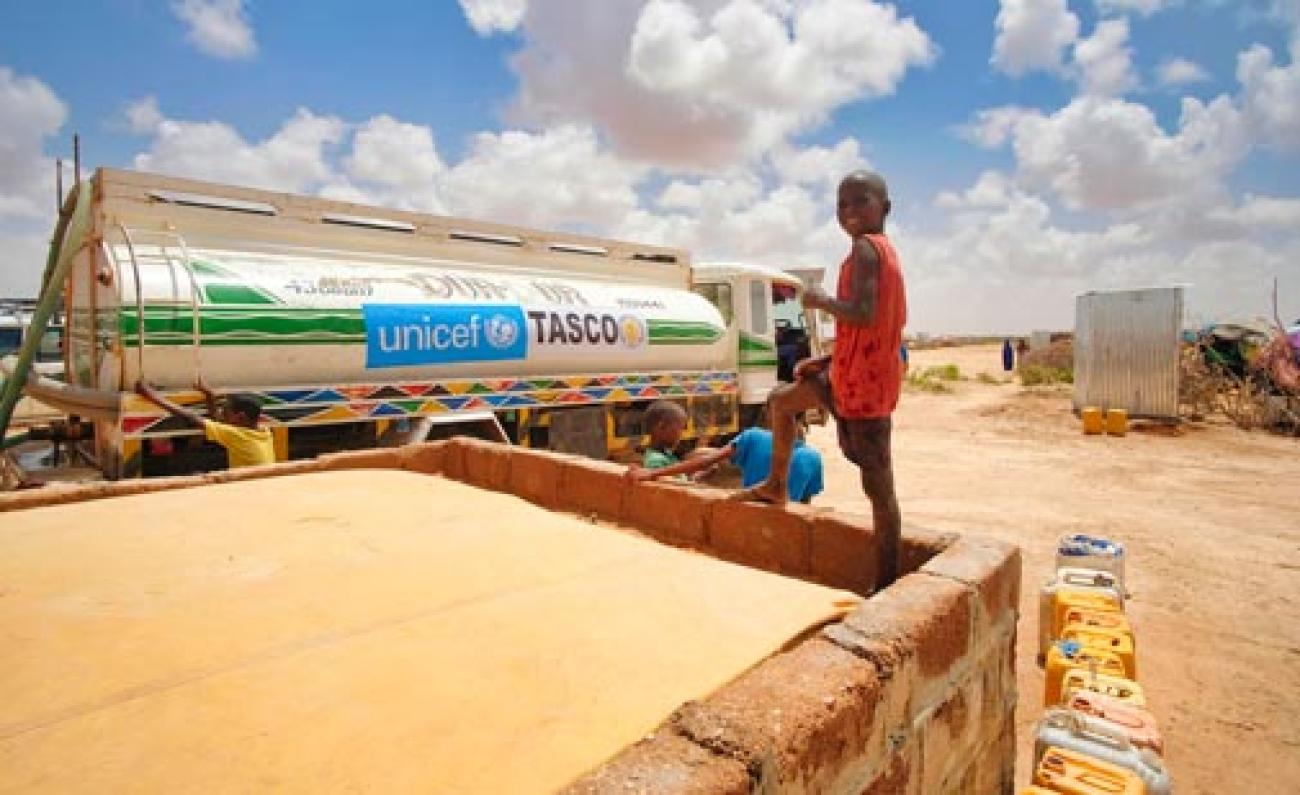Fighting for survival

Stabilization centres are saving children’s lives in Somalia
A doctor checks Bashir Mohamed’s medical card at the Burtinle Stabilization Centre, Puntland, Somalia. Little Bashir is playful and in much better shape than he was 6 days ago when he was admitted to the centre.
“When I brought my son here, he was suffering from diarrhoea. He had lost his appetite and hadn’t eaten for days. He was very weak and dehydrated,” said his mother, Muslimo Yahye.
On arrival, the doctor examined Bashir by measuring his upper arm circumference and confirmed that he was severely malnourished. For the first few days he was given intravenous fluids. After that, he was fed therapeutic milk. Now that his appetite is back, he is ready to start eating therapeutic food for malnourished children like him.
The Centre, funded by the German Development Bank (KfW) and USAID’s Office of Food for Peace, provides continuous care and treatment for children with severe malnutrition and associated medical complications.
Persistent levels of acute malnutrition disproportionately affect the urban poor and drought-affected pastoralists. Their children are particularly vulnerable because these families cannot afford to improve their diet to prevent or recover from malnutrition. The Centre is the one place where these poor and underserved families from the town and the nearby pastoral settlements can access much-needed care for their children free of charge.
Bashir will be discharged from the Centre in two days and he will continue receiving supplementary feeding as an outpatient. This will help to sustain his recovery and prevent relapse.
It is not uncommon that some children relapse following their treatment. This happens when they do not complete their treatment, or their diet does not improve after they have been discharged. To prevent this, mothers receive nutrition counselling at the Centre. They are taught how to feed infants and young children. The health workers explain the importance of breastfeeding and complementary feeding practices – and they encourage parents and caregivers to ensure they complete their child’s treatment.
“I am very happy to see my child’s health improving again,” said Bashir’s mother. “Upon the counsel of the health workers, I will continue to give him his therapeutic food regularly. I will also make sure that I give him a more nutritious food so that he doesn’t get sick again,” she added.
Burtile Stabilization Centre provides health and nutrition services, as part of an integrated project implemented by UNICEF’s partner, World Vision International. The project supports 11 stabilization centres in Puntland and is supported by UNICEF through cash and supply assistance.
Link to original story.

